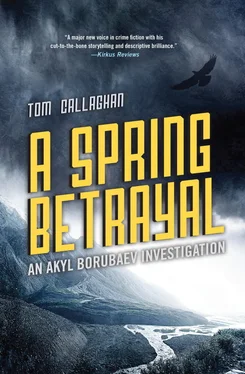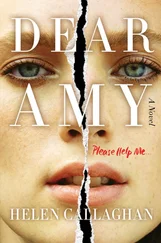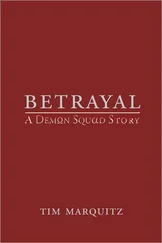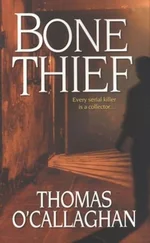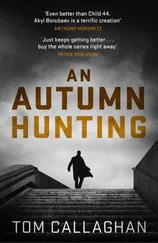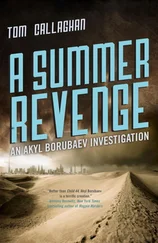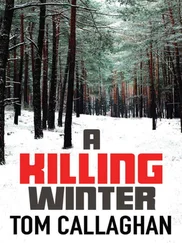An hour later, we were back at the safe house, having stopped on the way at Faiza on Jibek Jolu for takeaway shashlik and lagman . The food was rich and warming, and I felt more confident with my belly full. I looked at the bustling waitresses with their white headscarves and long maroon skirts, watched the ease with which they took orders, brought piled plates of food, envied them their calm and professionalism.
Saltanat took a long swallow from a bottle of beer, poured a little more chai into my teacup, the sign of an attentive hostess.
“We can’t hide out here forever,” she said. “Kurmanalieva will still have plenty of contacts back in Tashkent, and sooner or later she might want to use this place, or bring people over the border on a mission.”
Saltanat made a sour face, drew her forefinger across her throat.
“So we have to find out why she’s here?” I asked.
Saltanat nodded agreement, finished her beer. The alcohol had gone slightly to her head, and she gave a smile that was friendlier than her usual impassive stare. I was sober, but it was still encouraging.
“The way I see it, there are various scenarios,” I said. “One: Tynaliev, Graves, and Albina are all in this together. Two: Albina is here to do a job for Graves that isn’t connected to the murders. Three: Tynaliev and Albina are lovers, and he’s introducing her to a powerful local businessman.”
“Do you think Tynaliev and Albina might be lovers?” Saltanat asked.
I weighed the idea up, shook my head.
“He’s known for liking young women; that’s why his wife lives at their dacha. Albina’s well-preserved but about twenty-five years too old for Tynaliev.”
I ran the alternatives through my head once more.
“I can’t see Tynaliev being involved in the porn and murders,” I said, shaking my head. “He doesn’t fit the profile. And too much to lose.”
“Well, we know Graves is involved,” Saltanat stated. “You don’t think Tynaliev is. So we need to lean on Albina, find out why she’s here.”
“How do you propose we do that?” I asked. The thought of facing a knife-crazed virago at some point didn’t have a great deal of appeal.
“We have to give her something she won’t be able to resist,” Saltanat replied.
“Which is?”
“A rematch with me, with knives.”
The smile she gave would have frozen Lake Issyk-Kul in high summer.
“You’re going to call her?” I asked. “Won’t that let Graves know that we’re still out to get him, despite your earlier promise?”
“You think Uzbek security service agents contact each other using another country’s phone system?”
The scorn in her voice was light, but still there. As usual, I realized I was out of my depth when it came to the way the invisible ones worked. Give me a badge and a gun and I could sort most things out. In a world of whispers and false information, I was a novice.
Saltanat took pity on my ignorance.
“In our tradecraft,” she explained, “we use pay-as-you-go mobiles to send text messages to a secure encrypted website. We have a second cutout by using code numbers, the way you police do when calling in. But our code numbers change every day, again encrypted on a personal basis. So even if I read what another agent wrote, I wouldn’t be able to make sense of it. Only when I get a message back can I use my private codes to decipher it.”
“Wouldn’t it be easier to just make a call?” I joked.
Saltanat didn’t smile.
“Only if you’re not bothered about ending up underground if it all goes wrong,” she said.
So I stopped smiling as well.
“I’ve learned not to trust anyone, Akyl,” she said, and the pain in her voice snatched like a thief at my heart. “Not when it comes to work.”
I leaned forward, placed my palm against her cheek.
“Let me tell you a story about trust,” I said, sent my memory back a quarter of a century…
I’d been in the orphanage for only a few months when we were all told we had to make our dormitories spotless; an important visitor was coming to see us. It’s not that we didn’t keep the place clean, but we spent two days sweeping every corner, scouring the kitchen pots and pans until they gleamed, washing windows free of the past winter’s stains.
A few of us had nice clothes in the battered cardboard suitcases we’d brought with us, so we paraded in our idea of finery. I was almost thirteen, still small for my age, and I used to stare out of the window up toward the mountains for hours, waiting for my mama or my dedushka to come and take me home, back to hugs and kisses and steaming, overflowing bowls of plov . I still had hope, a trust that everything was only temporary, that it would all turn out for the best.
On that day, I stood on tiptoe, my chin resting on the window ledge, nose pressed up against the glass. I was watching for the cloud of dust in the distance, down the road, that would announce the arrival of the important visitor. I wondered—hoped—it might be my mama , rich from her time away in Siberia, coming in a big black limousine to take me away. For two hours I stared, until my head began to spin. And then I saw it, the big black car I’d been hoping for, a Zil Classic, the kind the president rode around in. I watched it get closer, sunlight flaring on the tinted windows, before it finally turned through the gates that led to the orphanage’s main entrance.
I could see the orphanage director, a tall, too-thin man called Zenish who stared suspiciously at the world as if it was determined to do him wrong, with a hand all too quick to clip an offending ear as it passed by him. But today he wore a smile that fit as badly as his clothes. I watched as the car came to a halt beside him, noticed how he polished the toe of one shoe on the back of his leg.
A uniformed driver hurried around to the rear door of the car, opened it. A woman got out, and tears burned in my eyes as I saw it wasn’t my mama . An elegant young woman, slim, stylishly dressed in clothes that had obviously never seen the inside of a Bishkek shopping mall. I knew nothing about fashion but I could recognize the sheen of money and power.
From the way Zenish rushed forward and shook her hand, I could tell she was important. He started to say something, but she cut him off in mid-sentence with a nod of her head. She walked toward the entrance, and Zenish followed, with that odd crabbed gait tall people use to keep behind someone they don’t want to offend.
Zenish clapped his hands in the hallway, to summon all the children. We ran into the hallway, formed a ragged line, staring at our visitor with unconcealed interest. She was probably the richest, most sophisticated person any of us had ever seen.
Seeing her close up, I could tell she was only a few years older than me, her late teens or very early twenties perhaps, with Slavic features and blond hair tightly coiled onto her head. I wondered if perhaps she was a famous film or television star, looking for children to be in her next production. We all watched as the woman walked slowly down the line, inspecting all of us. From time to time she stopped in front of a child, boy or girl, held their faces up with a hand under their chin, staring to see if they flinched from her gaze. Her eyes were black, cold, and her mouth was tightly closed, as if holding back an insult or a curse.
The little girl standing next to me started to whimper from nerves, twisting the threadbare material of her ill-fitting dress, a hand-me-down from an older sister. The woman heard the noise and crouched down in front of the child. Her eyes were cruel, probing for weakness, fear. The little girl started to sob, and I smelled the sudden reek of urine as she wet herself.
Читать дальше
